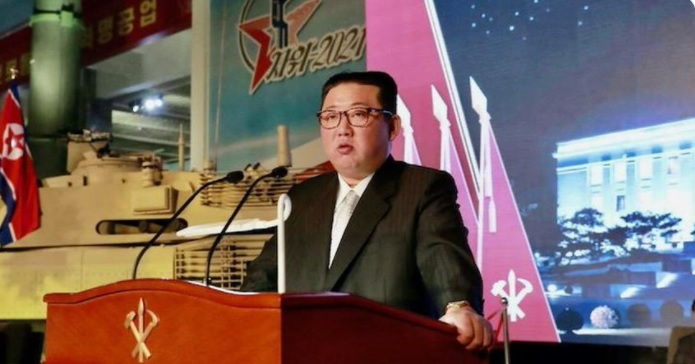North Korea on Tuesday launched a ballistic missile into the Sea of Japan, according to South Korean news agency Yonhap, citing the Republic of Korea's Joint Chiefs of Staff (JCS).
The missile was reportedly launched from the port of Sinpo, in the east of North Korea. It landed in the East Sea, also known as the Sea of Japan. Sinpo is a major naval shipyard and satellite photographs have previously shown submarines at the facility, according to AFP.
"Our military is closely monitoring the situation and maintaining readiness posture in close cooperation with the United States, to prepare for possible additional launches," the joint chiefs of staff said in a statement.
The JCS didn't immediately say what kind of ballistic missile it was or how far it flew, reported The Associated Press.
What's the Response of Japan?
The Japanese government cautioned that the projectile shot by North Korea may be a ballistic missile, and the Japanese Coast Guard issued cautions to ships in conjunction with the probable test. Marine safety alerts were issued to the ships.
Japan's Prime Minister, Fumio Kishida, said that two ballistic missiles had been detected, and that it was "regrettable" that North Korea had embarked on a flurry of tests in recent weeks.
North Korea's Missile Tests in Recent Weeks Aimed at Pressuring the US and its Ally, South Korea
North Korea has developed sophisticated nuclear weapons and ballistic missiles despite international condemnation, and diplomatic efforts to denuclearize the country have thus far been met with failure.
The rogue nation has in recent weeks tested a long-range cruise missile, a train-launched weapon and what it said was a hypersonic warhead. It is specifically prohibited by the United Nations from testing ballistic missiles as well as nuclear weapons.

Kim Jong-un's War Talk
North Korean leader Kim Jong-Un recently criticized the US for hostile policies and said his country is boosting its military capabilities to protect national sovereignty.
Kim accused the US of being the "root cause" of the Korean Peninsula's instability. He stated that there is no reason to assume that Washington's attitude toward Pyongyang is anything other than "hostile."
"We are not discussing war with anyone, but rather to prevent war itself and to literally increase war deterrence for the protection of national sovereignty," he said.









